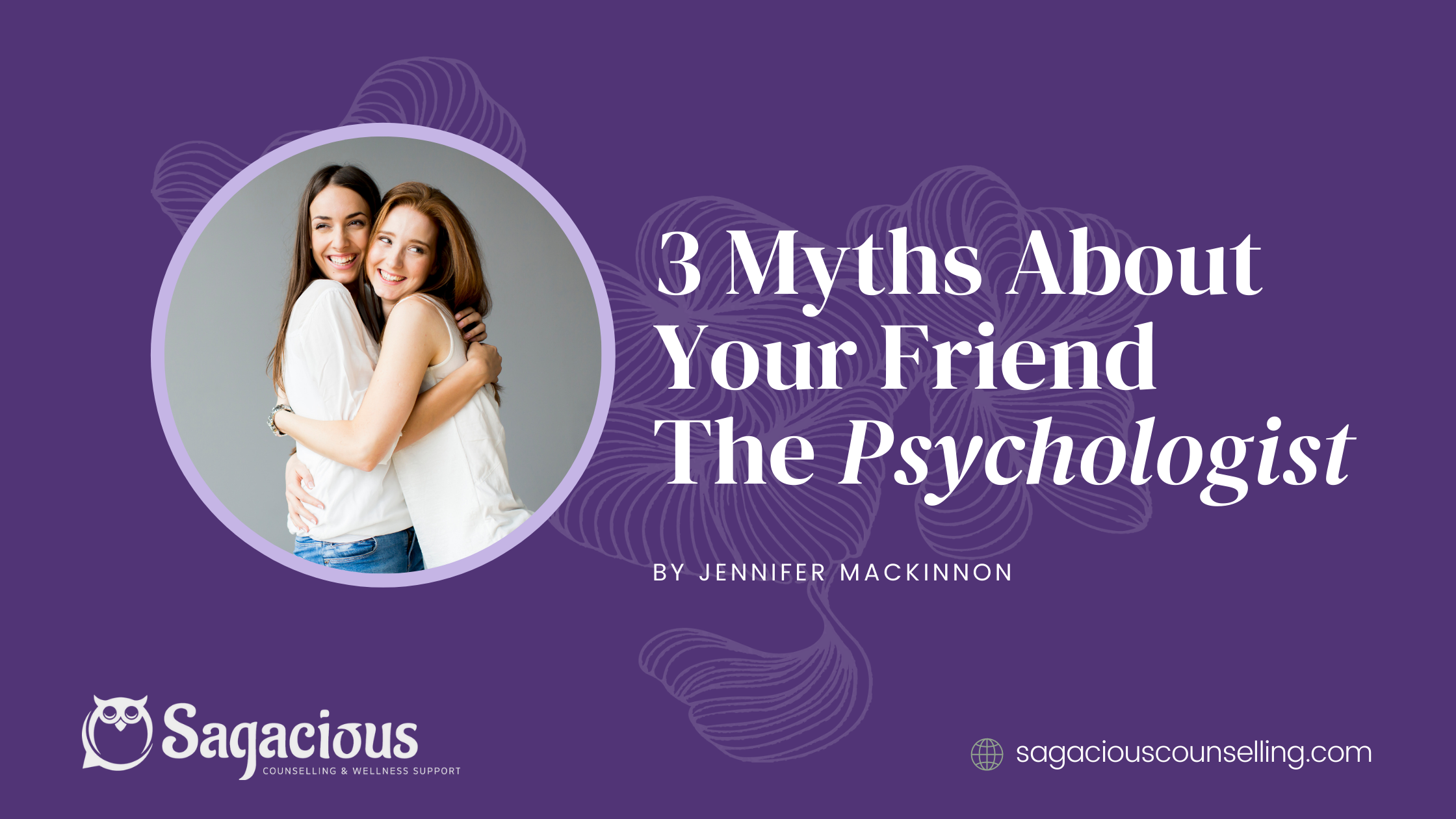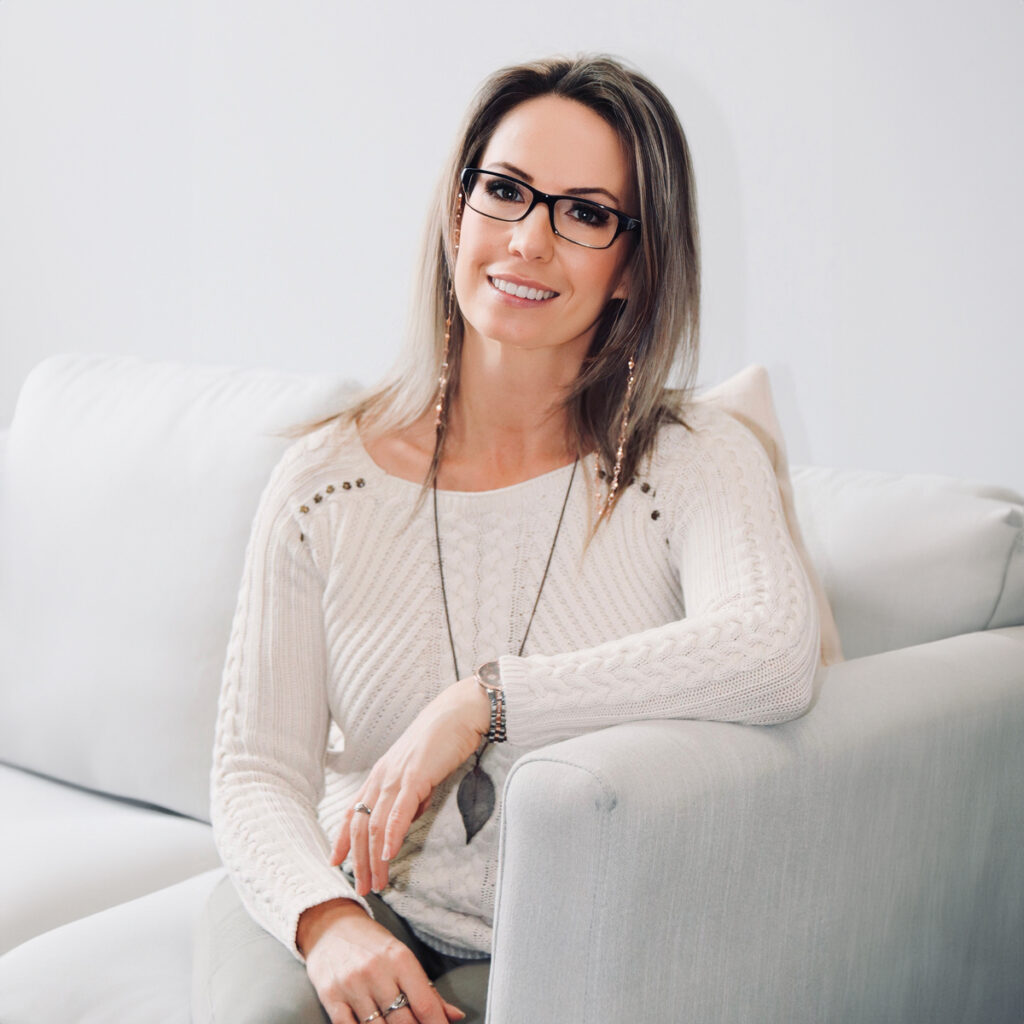I thought telling people I work for child and family services cleared a room, but sometimes telling people I’m a counsellor elicits the same reaction: people go silent, run for the door or freeze. Friends who become counsellors are the same people you always knew, only now they have a title in a career helping people figure out life. Most have always studied counselling or psychology, long before receiving a designation.
It can be isolating and challenging for counsellors to start conversations with friends and family because they might think their friend, who is now a counsellor, has a hidden agenda.
Let’s explore 3 myths about your friend the psychologist that will hopefully help you understand them so you can have a healthy and fun friendship.
3 Myths About Your Friend the Psychologist
Myth #1
My counsellor friend is judging or analyzing me
Counsellors do not judge their friends as they know far too well that “the struggle is real.” Counsellors get good at knowing when they need to put their counsellor hat on or wear the friendship hat. I don’t know about you, but after work I don’t want to come home and keep working. After a long day, I enjoy funny conversations with my friends, memes and jokes. I want to be a friend, sister, mother and confidant without having to solve issues.
Counsellors don’t look at people through a diagnosis lens and are not dissecting your story to label you. Therapists are humans too. If you feel your therapist friend is wearing their counselling hat with you, just ask them, “can I have my friend/sister/mom today, no the counsellor.”
Counsellor Friend Bonus
When you are needing a friend to really listen to you, your counsellor friend might be just the person you need to be around. You know that their insight comes from a place of educated understanding.
Myth #2
Counsellors have their life together
Every human is a learning and evolving creator that changes throughout time and with more knowledge. We are not the same as we were last year, five years ago or ten years ago. The most beautiful things about being human is we all make mistakes.
Counsellors might know underlying reasons for behaviour, but that doesn’t mean their anxiety and stress does not act up from time to time. Counsellors grieve the same as other people, despite knowing there is a process to it. Counsellors struggle in relationships and boundary setting too. They are trained to seek information from others but can spend so much time helping others they forget about helping themselves.
Counsellor Friend Bonus
I don’t know about you, but I’d prefer my counsellor friend to have first hand experience with life issues that we all struggle with. Past struggles bring greater understanding and empathy to a relationship.
Myth #3
My counsellor friend doesn't need support, they can help themselves
We all need good people to talk to and interact with. Supportive connections are the cornerstone to healthy individuals. I genuinely enjoy bouncing ideas off friends and hearing other people’s perspectives on things. I learn something new every day from friends and family.
Counsellors need friends and family to check in on them and see how they’re doing; it’s good mental health hygiene.
For more information on the importance of supportive connections for good mental health, read How Social Support Contributes to Psychological Health.



